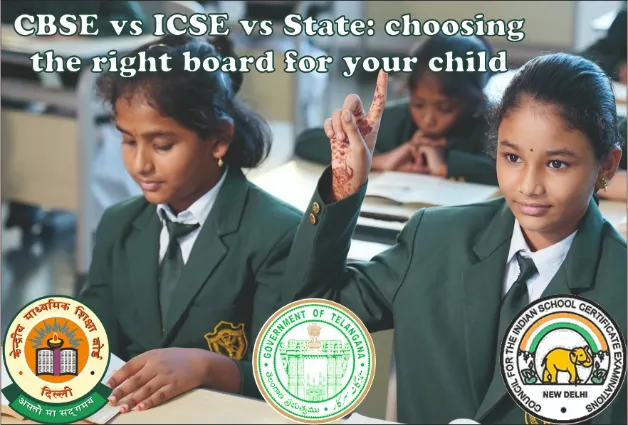The first factor that parents consider while choosing a school for their child is the board the school is affiliated with. The right education board can help nurture a child from a young age and act as a catalyst in their career and personality development. To choose the right board for your child, information and knowledge about each board is necessary.
Therefore, one must understand the aspects of each board. Namely, the curriculum and teaching methodology that each board offers and how well it aligns with the life, personality and career goals of the child. The common boards followed by schools in India are CBSE, ICSE and State Board. An overview of the focus areas of the curriculum followed by these boards is given below:
1. CBSE –
CBSE is the dominant education board in India. Most schools in the country follow the CBSE curriculum because of its standardised syllabus which is set by the National Council of Educational Research and Training (NCERT). It offers a curriculum in two languages- Hindi and English. It prepares the students for competitive exams like JEE and NEET.
CBSE curriculum is based on knowledge and practical learning to get students ready for future jobs. Most CBSE schools encourage students to participate in various co-curricular activities by offering platforms to learn music, dance, sports, entrepreneurship, public speaking and leadership. Subjects offered in CBSE are Maths, English, Hindi, Physics, Chemistry, Biology, Accountancy, Business Studies, Economics, Psychology, Sociology and Geography in Science, Commerce and Humanities streams.
2. ICSE –
Indian Certificate of Secondary Education (ICSE) is another commonly followed board in India. ICSE adopts English as the sole medium and does not support a curriculum in Hindi. Council for the Indian School Certificate Examinations decides the syllabus and is oriented toward preparing students for international competitive exams.. In India, ICSE schools are smaller in number compared to CBSE schools. The curriculum applies 20% weightage to practical assignments. ICSE promotes an in-depth teaching modality which increases its difficulty level. The subjects taught in an ICSE school are almost similar to CBSE board subjects.
3. State Board –
The state government regulates the functioning and curriculum of a state board. The State Board curriculum is usually based on NCERT and it shares few similarities with the CBSE curriculum. The State Board also offers English as the medium of instruction apart from the regional language. The state board is famous as it aims to make education affordable and accessible to all students. State boards offer standard subjects such as science, maths, economics, history, and geography. As the State board focuses on providing basic education to students, it lacks infrastructure for various extracurricular activities.
All CBSE, ICSE and State boards come with their own set of merits and demerits. Parents need to choose the curriculum that suits their child after doing thorough research and talking to their child to understand his/her needs. Students who want to prepare for National competitive exams and Central government jobs should choose the CBSE board. For students who want to pursue education or a career abroad, the ICSE board is best. If you want your child to study in the regional language, the State board will be a great choice.




